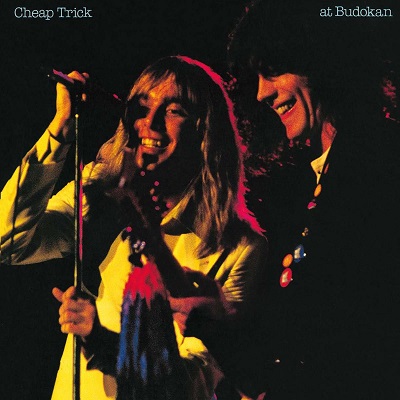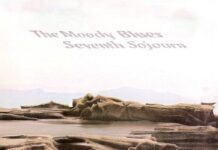In 1978, if you wanted a copy of Cheap Trick’s At Budokan, you had to plop down $11.99 for the Japanese import. Epic, in their infinite wisdom, eventually released the album stateside, and watched in astonishment as it raced up the charts and held on for the next year. A lot of the appeal behind the record was found in the prepubescent screams that accompanied the music, sounding every bit as hysterical as the girls sitting in Hollywood Bowl over 10 years earlier when the Beatles walked on stage. One listen to the songs and the similarities are only too obvious. Cheap Trick, an Illinois-based power pop foursome — two slick-and-lick rockers, a bowery boy look-alike who wrote the tunes and played lead guitar and an accountant on drums — were already a huge hit in Japan. At Budokan translated that success to the rest of the world.
The secret behind Cheap Trick’s distinctive brand of pop is that it is both abrasive and harmonious in its assault. Rick Nielsen’s biting guitar work is mildly absolved by Robin Zander’s assured vocals and unassuming rhythm guitar. Drummer Bun E. Carlos and bassist Tom Petersson masterfully corner the pocket, without letting hinges get too rusty in the aftermath. Brought together, it’s easy to swallow the hook-filled melodies that galvanize the entire Cheap Trick experience. With the band’s second album, In Color, Nielsen’s songwriting assumed a far more cohesive veneer, tossing off simple and careless odes such as “Hello There,” “Come On, Come On,” “Big Eyes,” “I Want You To Want Me” and “Clock Strikes Ten.” On stage, however the group accentuates each one of these with a kick to the groin that resounds with a definitive crunch.
The real hidden treasure of the album can be found within the slow, extended blues-based jam of “Need Your Love,” which eventually landed onto the Dream Police album. This is followed by Fats Domino’s “Ain’t That A Shame,” which, along with “I Want You To Want Me,” became a radio staple of the late 70s. At Budokan was such a hit it actually spawned a sequel 15 years later with the ingenious title of Budokan II (these marketing people are really on their toes!). The sequel simply included leftover tracks that didn’t make the cut for the original. In 1998, Epic and Cheap Trick decided to combine the two into a double CD set called At Budokan: The Complete Concert, with all 19 songs in their original running order. Since then, the original 10-song album, Cheap Trick’s best-selling platter, has been remastered and re-released to an unsuspecting public on numerous occasions. Through it all, Cheap Trick continues to record and tour without missing a beat.
~ Shawn Perry




















